

Uh oh...
It appears that you're using a severely outdated version of Safari on Windows. Many features won't work correctly, and functionality can't be guaranteed. Please try viewing this website in Edge, Mozilla, Chrome, or another modern browser. Sorry for any inconvenience this may have caused!
Read More about this safari issue.

Arkansas has no shortage of natural beauty, interesting political history, or famous residents. Maya Angelou made an indelible mark on the world of poetry, Johnny Cash will always be a legend in the music industry, and Scottie Pippin was inducted into the Basketball Hall of Fame. But there is another famous Arkansan not often mentioned, one that almost faded into the silent history of our state.
When I began my research for an article on the history of Argenta in North Little Rock, my first step was to walk around and familiarize myself with the area. The vibrant and quaint neighborhood is filled with charm with historic houses ranging from bungalows to Victorians. One of the area’s most famous houses, Baker House, has been beautifully remodeled and was long rumored to have been built by an African-American horse jockey from England. That wasn’t exactly true, but was a result of several decades of the historical telephone game. There was an African-American jockey who lived in a fine house in Argenta, but he wasn’t from England and didn’t build the Baker House. He was an Arkansan and built the other famous Victorian in the neighborhood, the Engelberger House.
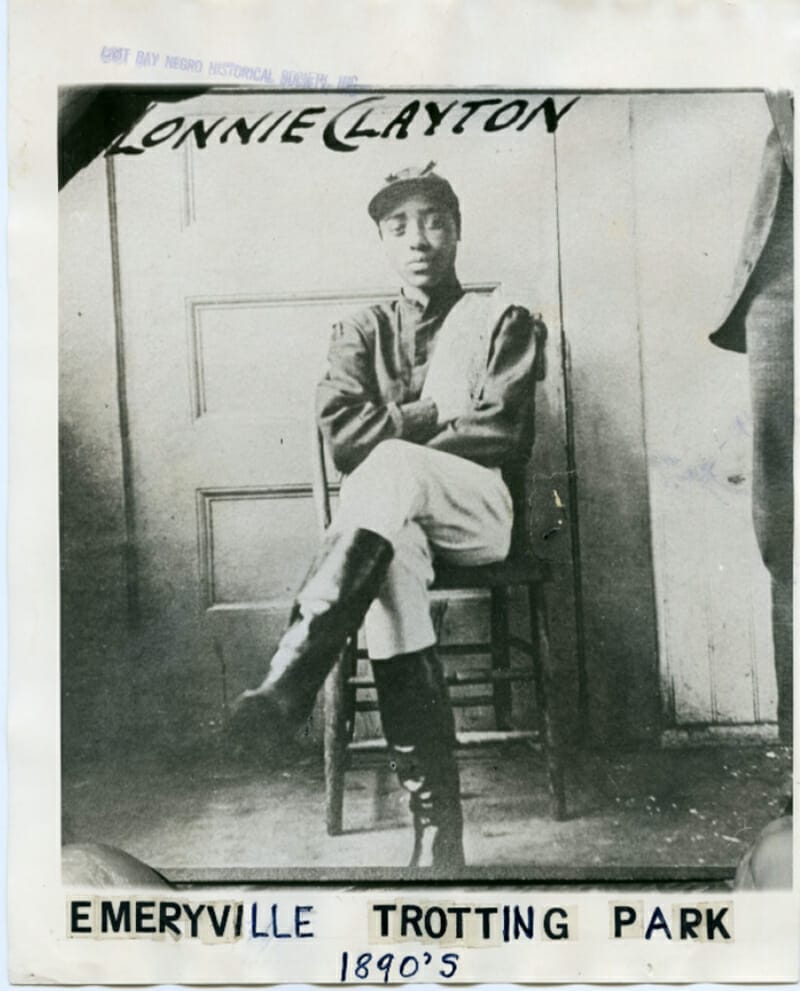
Photo: African American Museum Library of Oakland
Alonzo “Lonnie” Clayton was born in 1876 in Mississippi, but moved to Arkansas as a child. Noted as a smart and a hard worker, Lonnie moved to North Little Rock with his family as a child. In addition to attending school, he worked part time in a hotel to help support his family. His parents, Robert and Evaline Clayton, had nine children.
In a move that is unthinkable within the context of modern times, Lonnie left home at the age of 12 and went to Chicago. He joined his older brother and began working as a stable hand for Lucky Baldwin. Baldwin was a California businessman who was known for his scandalous lifestyle, but also known for hiring many minorities. At the young age of 14, and after only two years in Chicago, Lonnie garnered considerable experience and success. He moved to New Jersey and began a career as a professional jockey.
It’s hard to imagine a fourteen-year-old managing his life and career alone in the New York area, but Lonnie achieved almost immediate success. He won the Champagne Stakes at Morris Park Racetrack in The Bronx just one year later. He rode a horse named Azra, which was the same horse he rode in the 1892 Kentucky Derby. Lonnie was 15 years old when he won, making him the youngest jockey to ever win the Kentucky Derby.
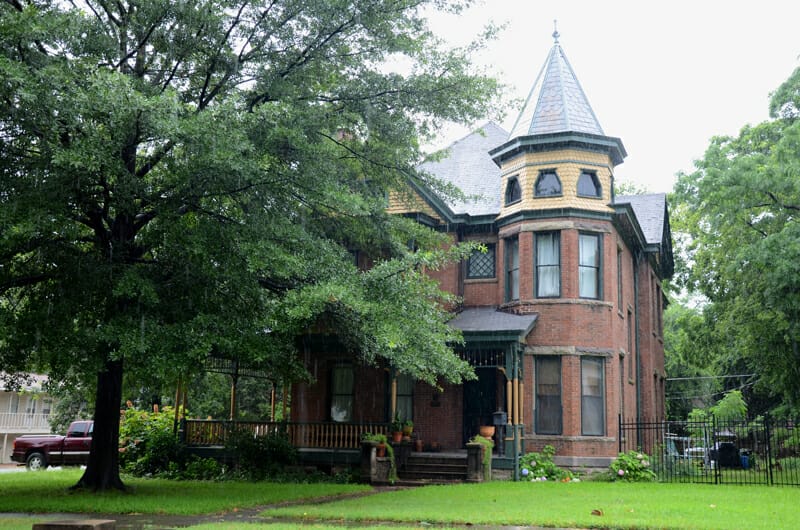
Photo: Wikipedia Commons
Lonnie continued riding and winning in many famous races. He won at Churchill Downs in 1893, Kentucky Oaks and the Arkansas Derby, all between the years of 1893 – 1896. He achieved these successes before the age of 20. In one year alone, between 1894 – 95, he won 144 races. This financial success not only benefited Lonnie, but also his family back in Arkansas. He built a beautiful home for his parents and siblings in the Argenta neighborhood of North Little Rock. A towering but homey Queen Anne Victorian, this house is now known as the historic Engelberger house. The Engelberger family has lived in the home since they purchased it in 1912.
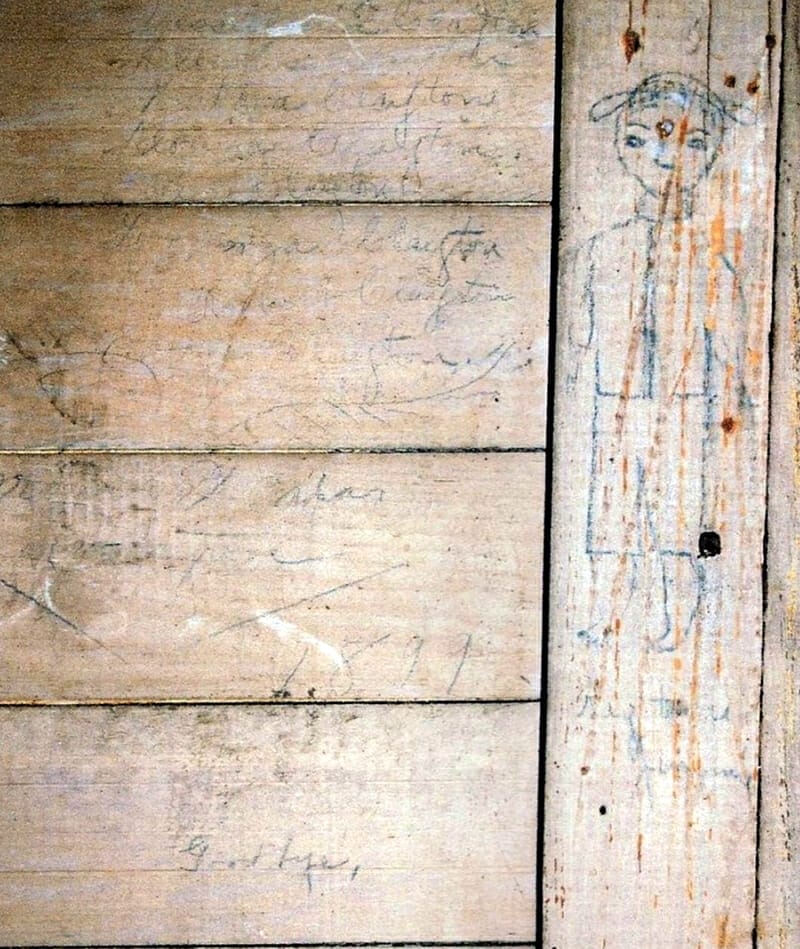
Photo courtesy of the Engelberger Family
The Clayton family lived in their new home for only a few years before Lonnie sold it. Evidence of the family still exists in the attic. They wrote their names on a wall, along with a child-drawing of a jockey named “Ragtime Jimmy.” The words “goodbye” and the date “1899” are written as well.

As quickly as life went well for Lonnie Clayton, the tides turned in the opposite direction. In 1898 he got into a physical altercation with a spectator at a race. Allegedly, Lonnie struck the spectator across the face. The spectator then filed suit against Lonnie in civil court, claiming pain and suffering. Lonnie was eventually arrested and jailed in Long Island City, Queens, for two months. Coincidentally, several years ago I lived one block away from the Queens courthouse and jail where he was sentenced, which is the building in the photo above.
In addition to his New York legal troubles, Lonnie didn’t pay his real estate taxes on his Argenta house. He was also sued numerous times for various monetary judgments, including by his own brother. The house was sold in 1900, and perhaps the drawings and writing in the attic was the Clayton family’s way of saying goodbye to their home.
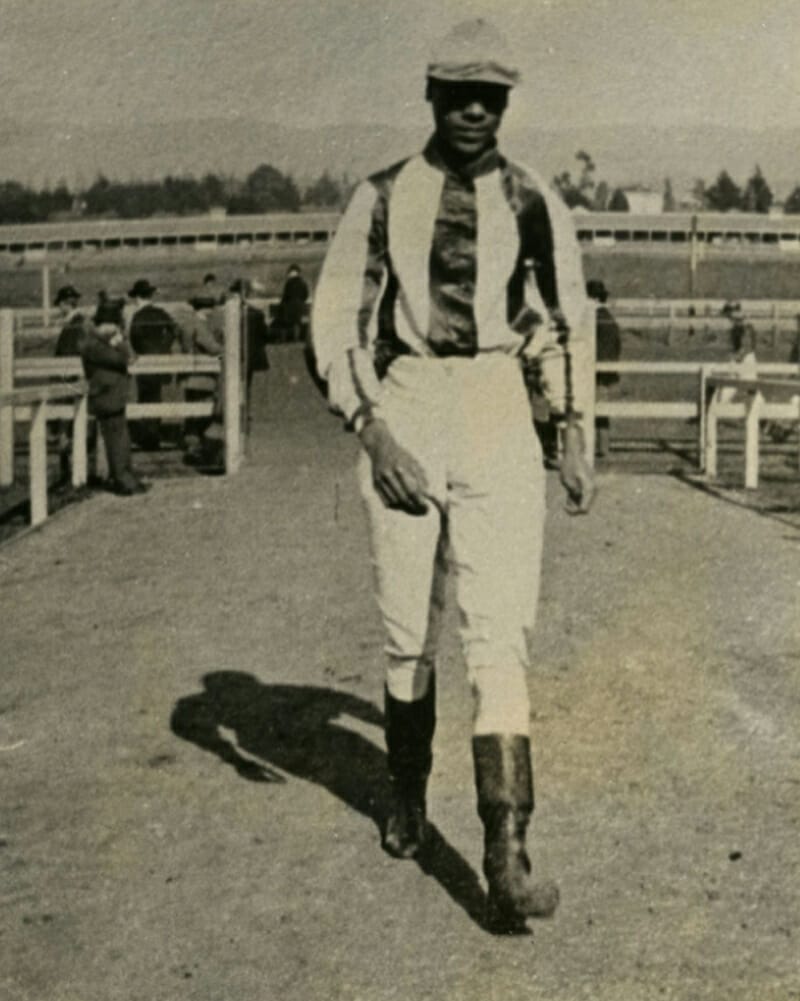
Photo: African American Museum Library of Oakland
Despite becoming a multi-millionaire by today’s standards, a combination of money and legal issues, combined with a sudden shift in horse racing discrimination, led to the end of Lonnie’s impressive career. African-American jockeys began to vanish, as they were pushed out of the industry in favor of white riders. Some African-American jockeys left and went overseas where there was less prejudice in horse racing, but there is no record that Lonnie joined them. The Clayton family left Arkansas and headed west together.
Lonnie had a heartbreaking ending to an incredibly accomplished and colorful life. After his acclaimed success and impressive career, he ended up working as a bellhop in the Los Angeles area. In 1917 he died of tuberculosis at the young age of forty. The legend of Alonzo Clayton, the youngest jockey to ever win the Kentucky Derby, faded into the background of Arkansas history. Over the years Lonnie and his family home history morphed and changed, and were eventually attributed to a fabled English jockey who allegedly built the Baker House.
But thanks to several historical societies, and the Arkansas Sports Hall of Fame (which inducted Lonnie in 2012), this famous jockey’s true identity is once again known and associated with the correct Argenta house.
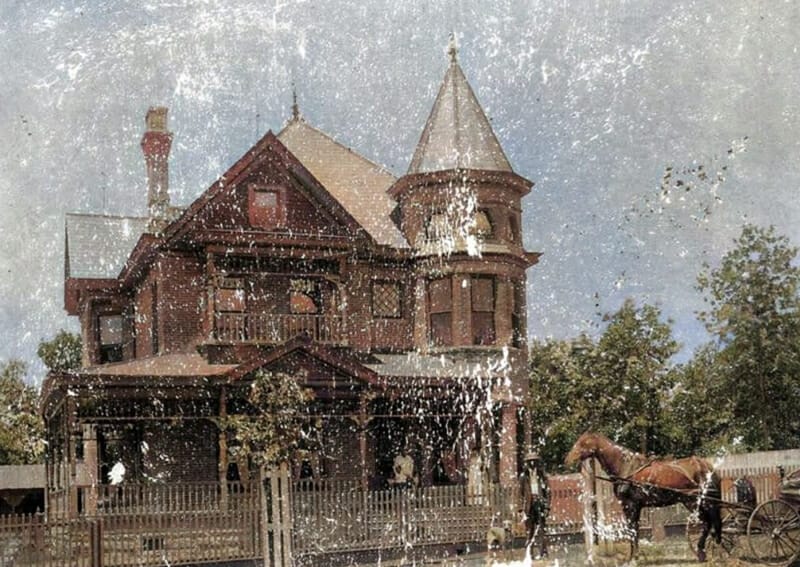
Photo courtesy of the Engelberger Family
The Engelberger family has, throughout the years, been faithful to maintaining the important integrity of their home. For 110 years, generations of Engelbergers have preserved the home’s historical features. Without the major upheavals and renovations most old homes undergo with multiple owners, the house is still very much as it was when Lonnie built it. This continuity of ownership ensured the Clayton family names, written all those years ago in the attic, are still safe and preserved. Lonnie Clayton, Arkansas’s most successful horseman, is still memorialized in the house he built, which is a touching memorial for an incredible young man who loved his family.
Join the Conversation
Leave a Comment
2 responses to “Arkansas Jockey Alonzo “Lonnie” Clayton”
 Leave a Reply
Leave a Reply
We do the work.
You check your email.
Sign up for our weekly e-news.
Get stories sent straight to your inbox!
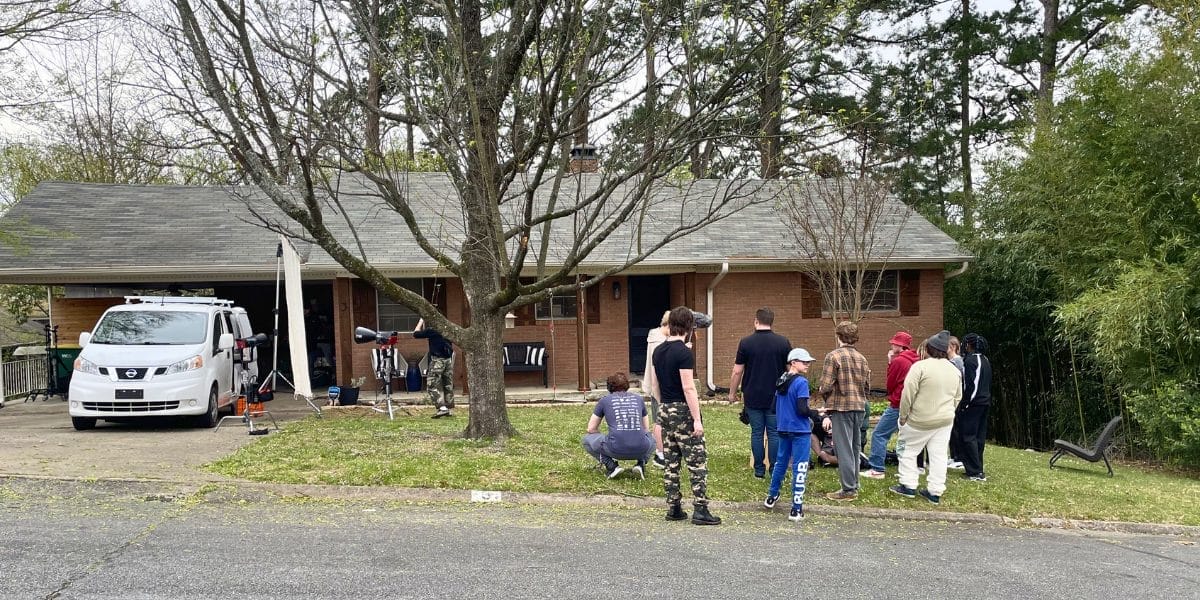




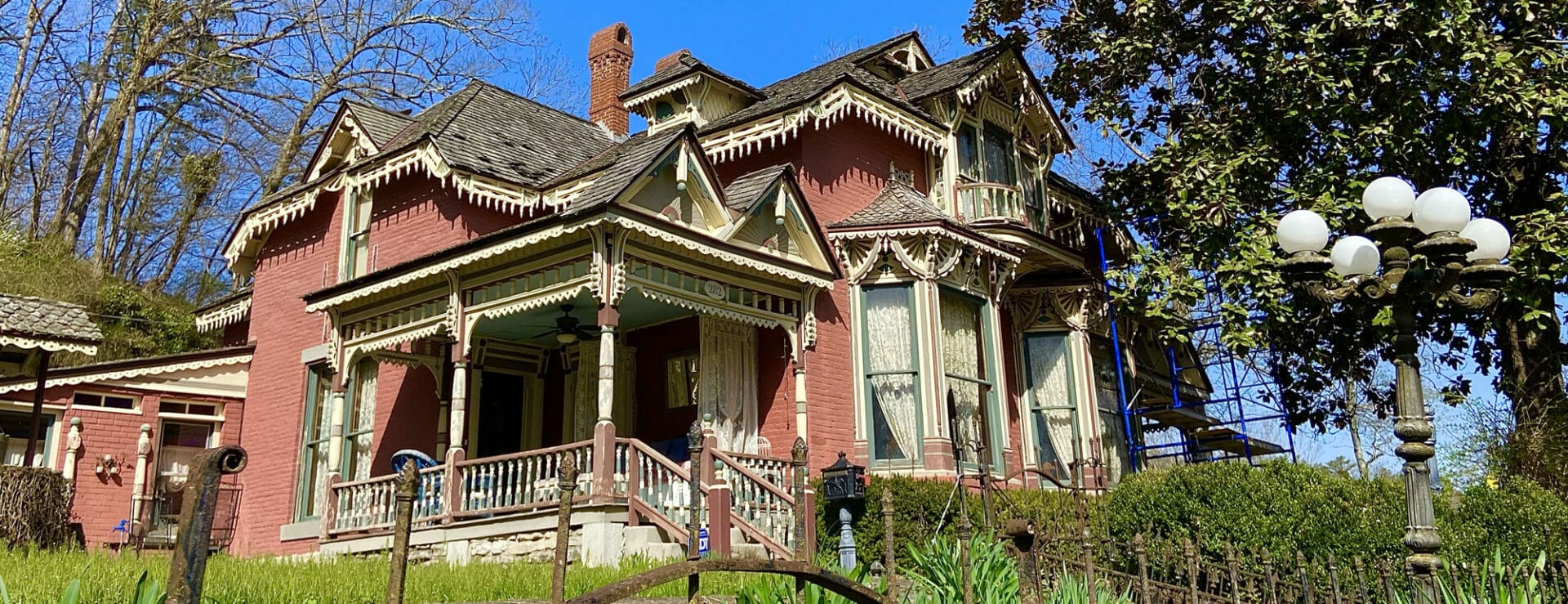

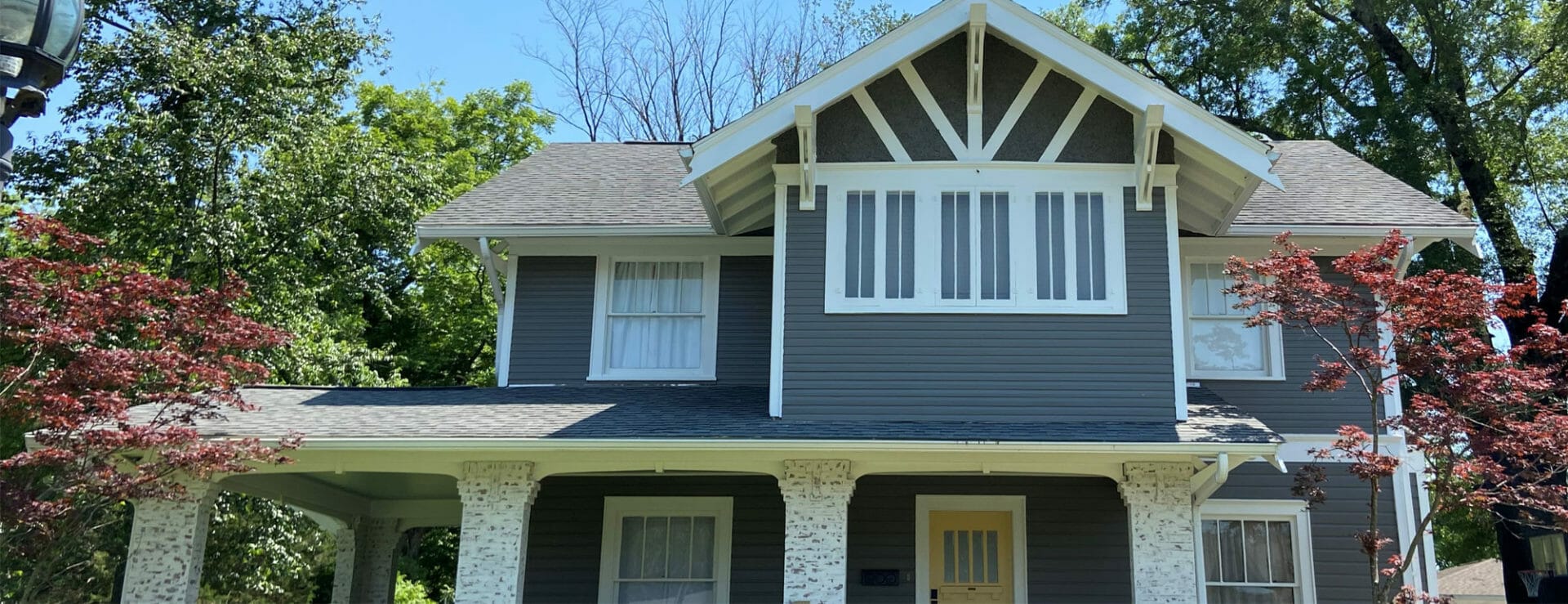
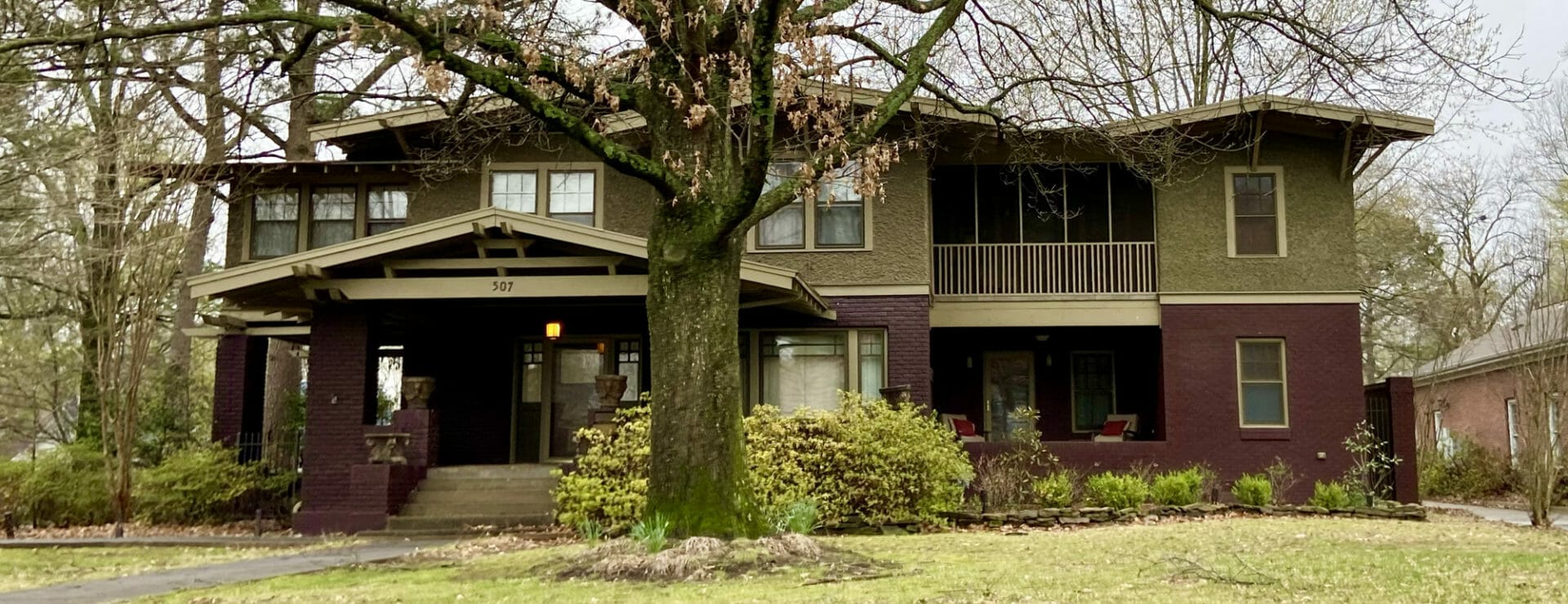
 Leave a Reply
Leave a Reply
[…] Historic Tour, this beautiful Queen Anne house was mistakenly rumored to be the former home of an African American horse jockey. But according to historical records, it was built in 1897 by Albert E. Colburn, a local jeweler. […]
Learn more about Lonnie, Alonzo Clayton and other incredible trailblazing Black equestrians through “LEGENDARY MAESTROS” by Sultan Zeshan. https://a.co/d/9LA5PwJ
Available on Amazon and B&N.